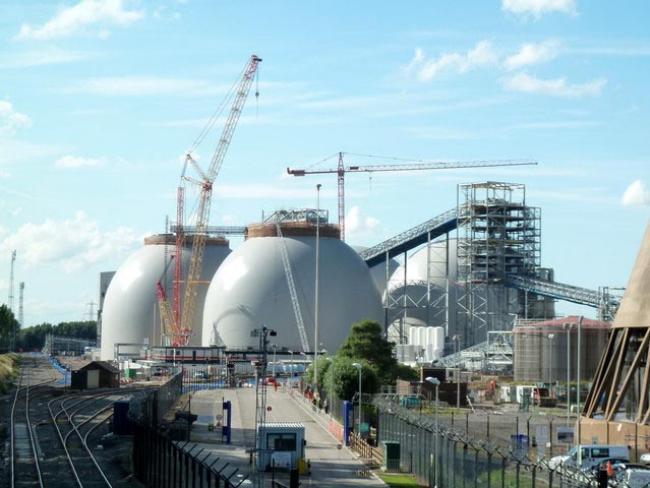15 January 2018

Biomass storage at Drax power station, North Yorkshire. Once the country’s biggest coal-fired power station, most of its output now comes from biomass.
The government has repeated its intention to close all coal-fired electricity power generation by 2025. Coal-fired power generation has already dropped by 85 per cent over the past five years.
Superficially this is as a result of the need to meet environmental targets. But more fundamentally it’s come about by market and government manipulation of carbon taxes, subsidies for renewables and a failure to invest in carbon capture technology for installation in Britain.
World-leading
Britain still remains one of the world leaders in exporting carbon capture technology across the globe but not for use in Britain. Certain critical power stations, notably Drax in Yorkshire, are switching to bio-mass burning (wood by another name!). Many others will become just industrial museums if not demolished.
The ending of over 140 years’ coal-fired generation is hailed by the green lobby as a victory. That does not create a comprehensive multi-faceted energy strategy for Britain. Close coal and gas generation will boom. Dependency on gas generation places the control of energy largely with foreign suppliers.
Risk
Those suppliers might be friendly with Britain today but that does not prevent accident, technical breakdown, sabotage, market manipulation or political change which places those supplies at risk. This risk has been demonstrated in recent weeks by breakdowns, accidents and explosions in both Scottish and Norwegian supply and distribution hubs. Interruption to supply equates to price rises and creates insecurity.
Dependency on nuclear generation is no answer on its own. There’s an awful trap as things stand – with a strategy for closing existing ageing nuclear stations, and over-optimistic (and expensive) plans for building new nuclear generation. A critical energy gap is looming between closures and new production coming online between 2018 and 2035.
Research into clean coal technologies needs to be supported. Investment is required both in mining techniques for extraction and in carbon capture. Coal remains an energy resource and reservoir for Britain’s future as much as any other source of energy.
